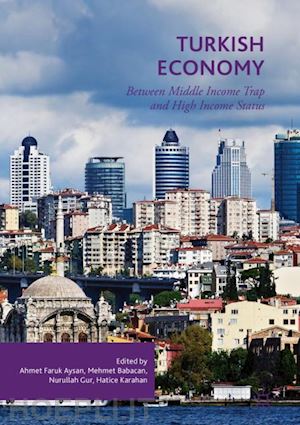Dr Ahmet Faruk Aysan is an associate professor and a member of the Board and the Monetary Policy Committee of the Central Bank of the Republic of Turkey. Dr Aysan has served as a consultant at various institutions including the World Bank, the Central Bank of the Republic of Turkey and Oxford Analytica, and he has been lecturing at the Department of Economics at Bogaziçi University since 2005.
Before joining the Central Bank, Dr Aysan was Deputy Director of the Center for Economics and Econometrics at Bogaziçi University, a member of the G-20 Financial Safety Net Experts Group, a member of the Advisory Board of Social Sciences and Humanities Research Group of TÜBITAK, and a National Expert in 'Socio-Economic Sciences and Humanities' under the Seventh Framework Programme of the European Union.
Dr Aysan's fields of specialization are international finance, macroeconomics, political economy, banking and finance, econometrics, governance and development.
Dr Mehmet Babacan is an advisor to the Office of the Prime Minister of Turkey. He has also been a member of the Auditing Committee of the Central Bank of the Republic of Turkey since May 2015. Dr Babacan has contributed a range of publications, projects, research documents and conference presentations, primarily on international trade and governance, economic growth, and political economy. He has published and refereed for articles in several international journals and is the author of three book chapters on trade and development in distinct edited volumes.
Dr Nurullah Gur is currently a faculty member at the Department of Economics & Finance, Istanbul Medipol University. He has published numerous articles in international journals with a focus on economic development and finance-real sector relations.
Dr Hatice Karahan specialises in macroeconomics, and currently heads the Department of Economics and Finance at Istanbul Medipol University. In addition, she serves as an economic consultant for the Turkish Exporters’ Assembly and writes bi-weekly columns at Yeni Safak, a Turkish newspaper. Karahan also contributes to Dunya, a national newspaper on economy and business with her opinion columns. She has academic publications on the Turkish economy, foreign trade, energy, R&D, and entrepreneurship in various national and international journals, books and reports.











